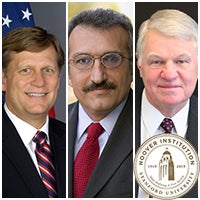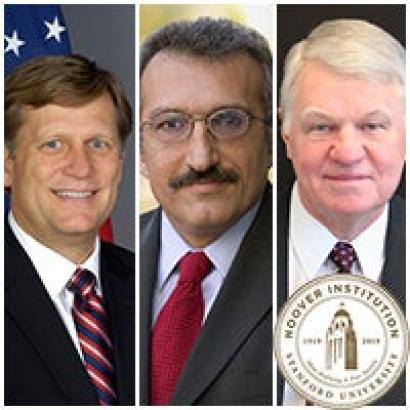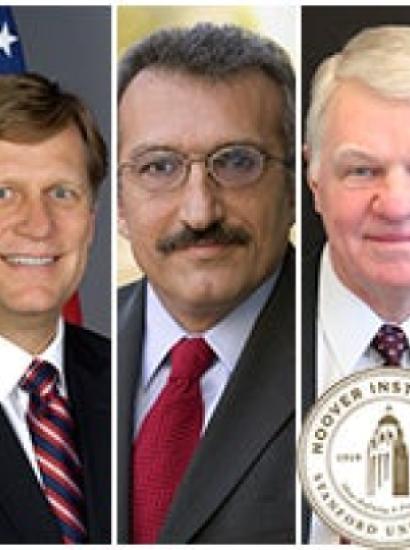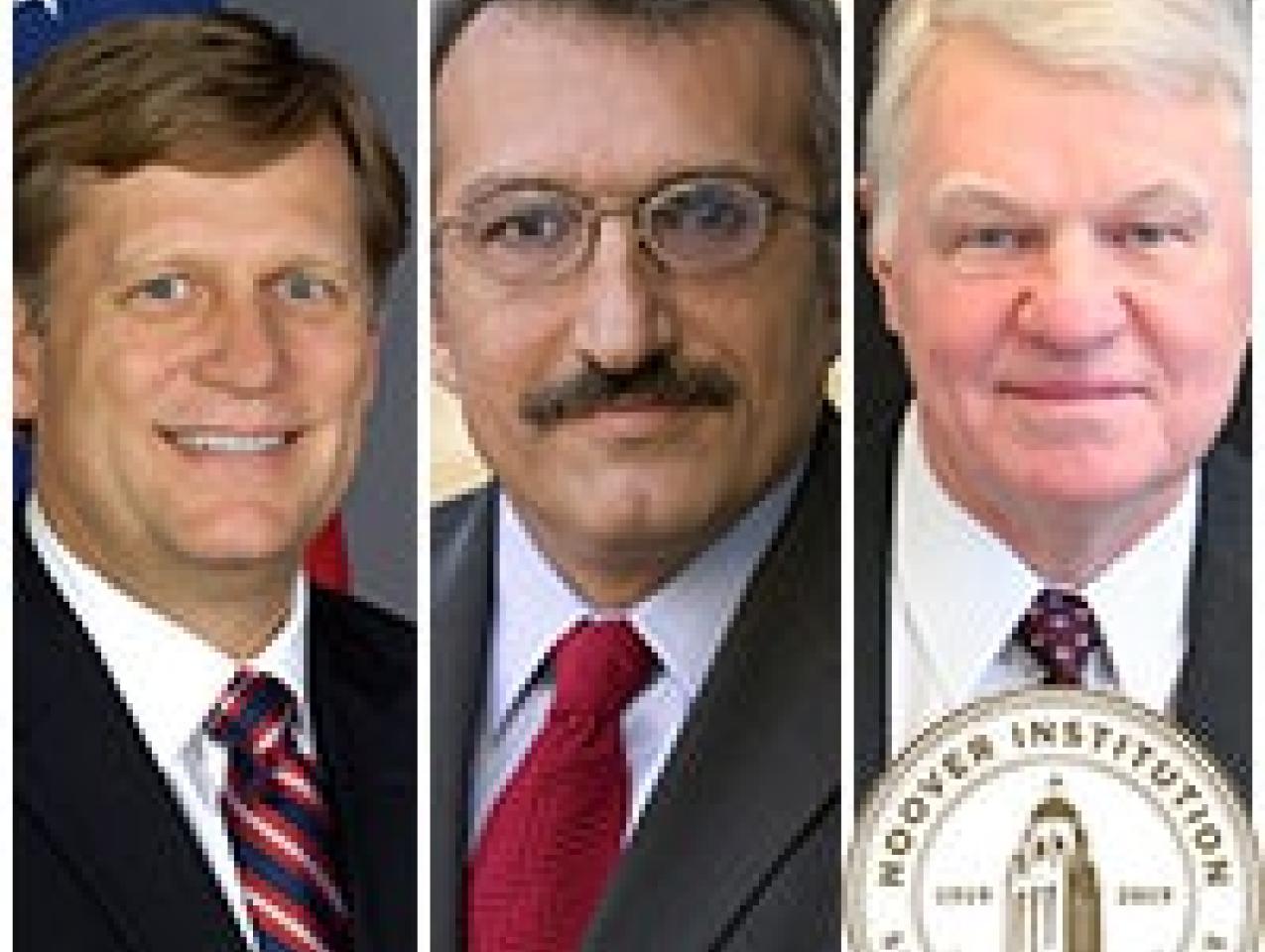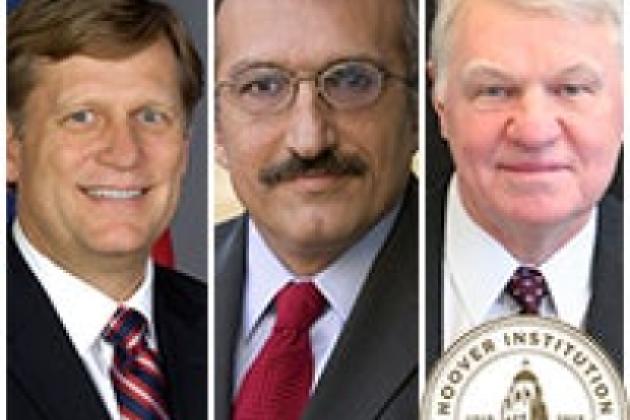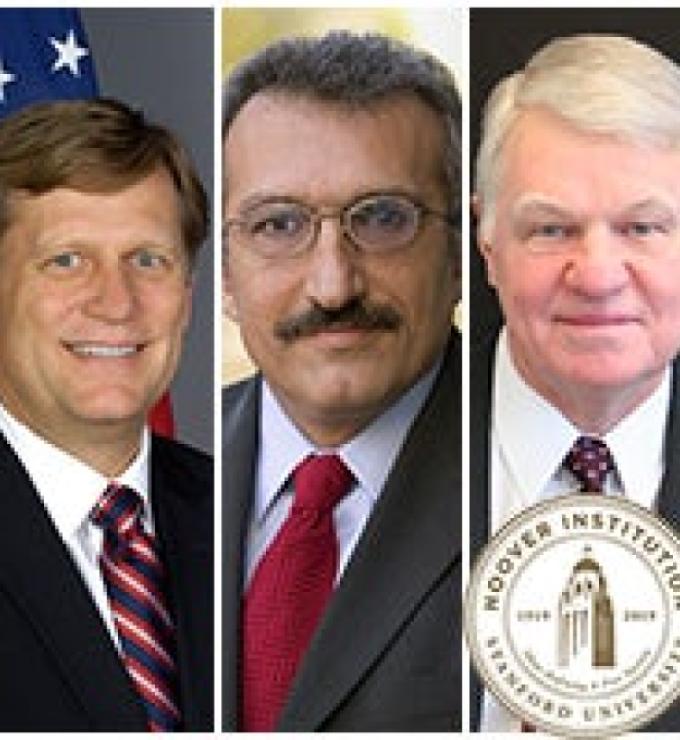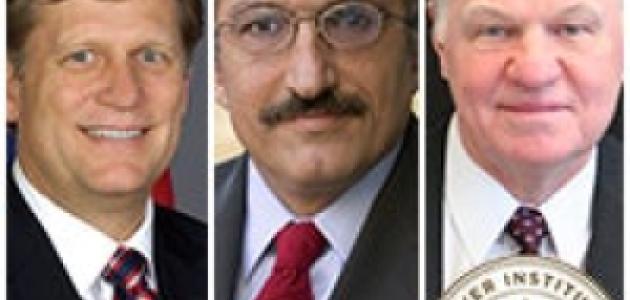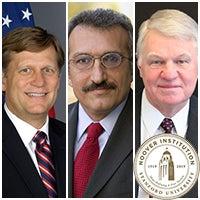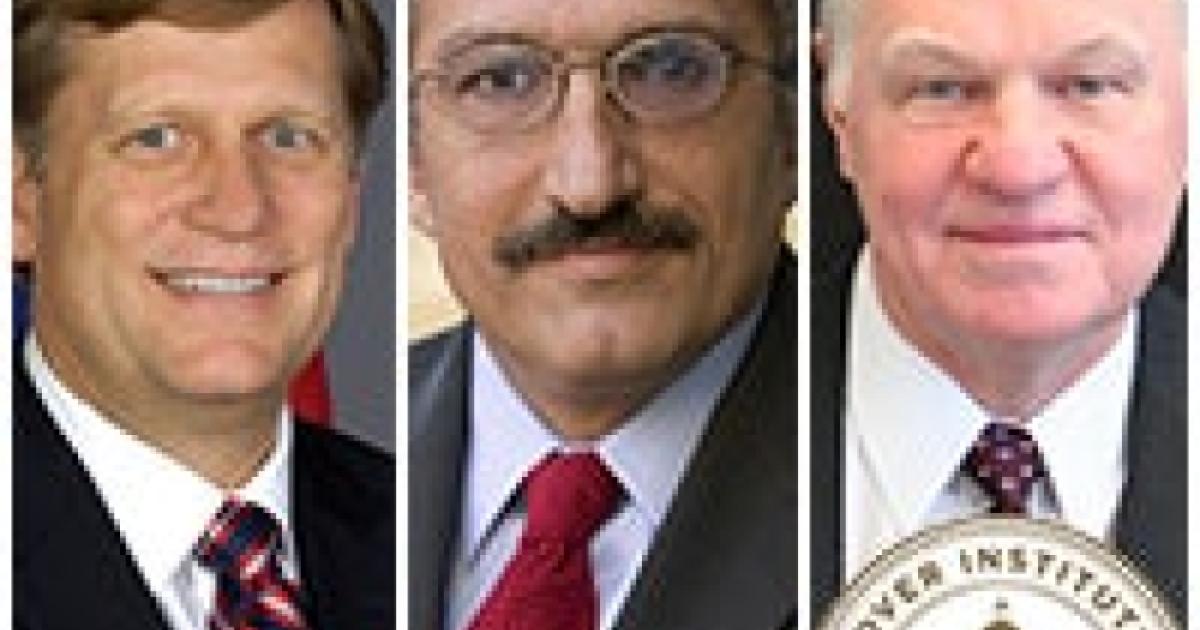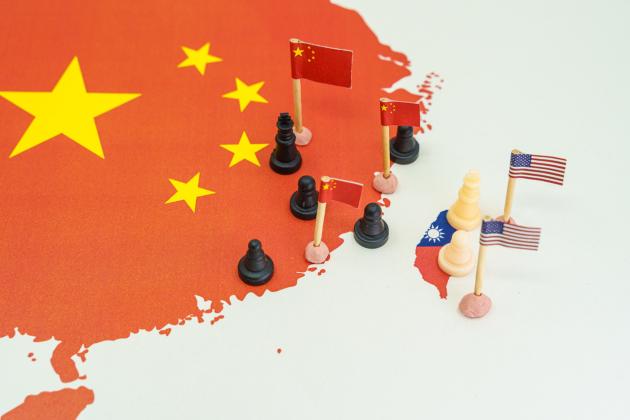The global order of the past seven decades is being disrupted by regional dynamics. Powers of the past are reasserting themselves—Russia in Europe and the Middle East, Turkey and Iran in the Middle East, and China in Asia and beyond. Technology is changing how nations can prosper, influence, and compel. The panel will discuss what these changes portend for each of these regions and the US role in shaping events in its national interest.
To see the full line up of the speaker series click here.
A livestream will be available during the event.
WATCH THE LIVESTREAM
PANELISTS
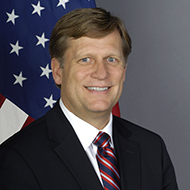
Michael McFaul
Michael A. McFaul is the Peter and Helen Bing Senior Fellow at the Hoover Institution as well as a professor of political science, director and senior fellow at the Freeman Spogli Institute for International Studies at Stanford University. His areas of expertise include international relations, Russian politics, comparative democratization, and American foreign policy. From January 2012 to February 2014, he served as the US ambassador to the Russian Federation. Before becoming ambassador, he served for three years as a special assistant to the president and senior director for Russian and Eurasian Affairs at the National Security Council.
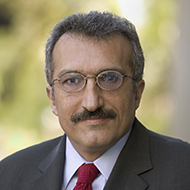
Abbas Milani
Abbas Milani is a research fellow and codirector of the Iran Democracy Project at the Hoover Institution. In addition, Milani is the Hamid and Christina Moghadam Director of Iranian Studies at Stanford University. His expertise is US/Iran relations and Iranian cultural, political, and security issues.
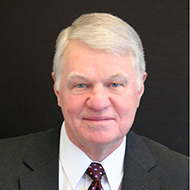
Gary Roughead
Admiral Gary Roughead, USN (Ret.), is the Robert and Marion Oster Distinguished Military Fellow at the Hoover Institution. Admiral Roughead graduated from the US Naval Academy in 1973. In September 2007, he became the twenty-ninth chief of naval operations after holding six operational commands and is one of only two officers in the navy’s history to have commanded both the Atlantic and Pacific Fleets.
MODERATOR
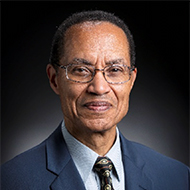
Cecil D. Haney, Admiral United States Navy (retired)
Admiral Haney completed 38 years of distinguished service in the United States Navy before retiring in 2017. As a 4-star Admiral, this career submariner commanded the US Strategic Command responsible for strategic capabilities involving nuclear weapons, missile defense, space and cyberspace and the US Pacific Fleet responsible for the manning, operations and maintenance of the US Navy fleet located in the Pacific and Indian oceans. He now serves on the John Hopkins University Applied Physics Board of Managers, the Naval Studies Board, the Center for a New American Security Board of Directors, the Senior Advisory Council for Aerospace’s Center for Space Policy and Strategy, the General Dynamics Board of Directors and the Systems Planning and Analysis Inc. Board of Directors. Working with the Institute for Defense Analysis, he also serves as a mentor for the Bush Fellows Research Study Team that includes distinguished university faculty and staff scientists in support of the Secretary of Defense’s Office of Basic Research.






